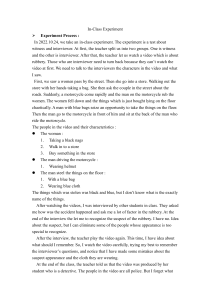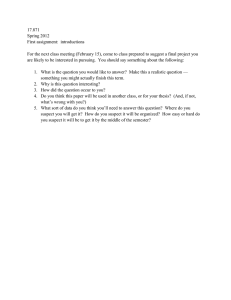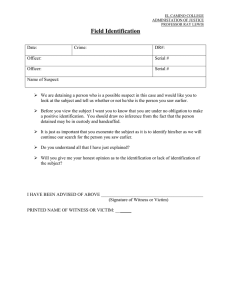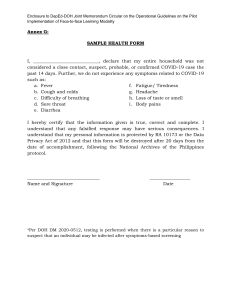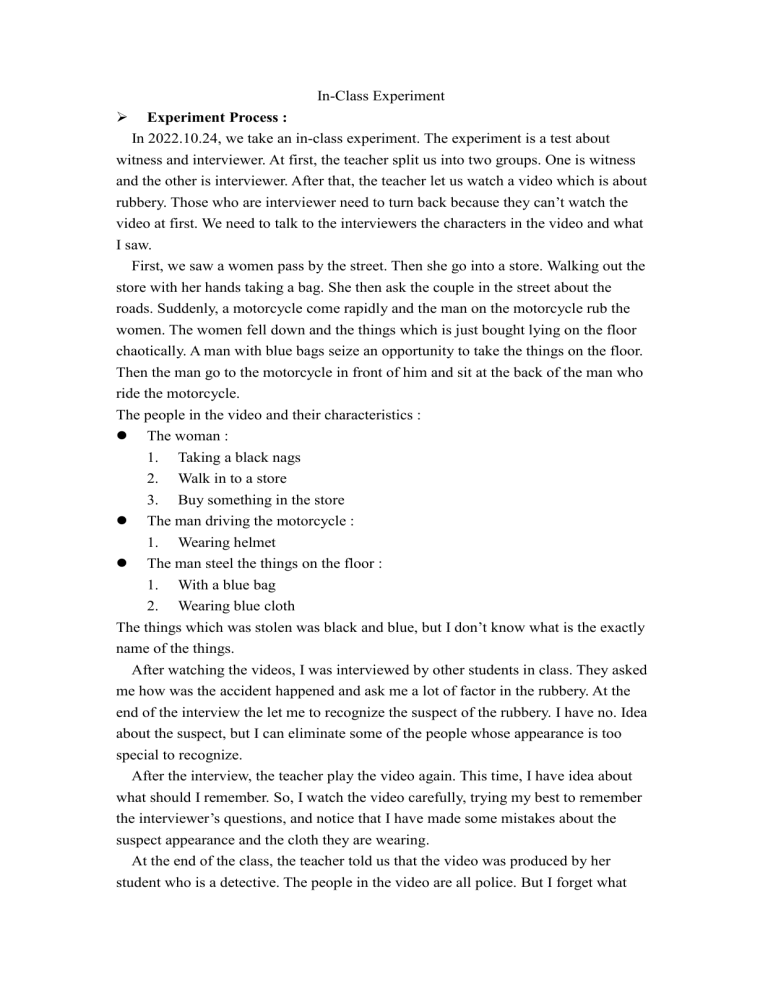
In-Class Experiment Experiment Process : In 2022.10.24, we take an in-class experiment. The experiment is a test about witness and interviewer. At first, the teacher split us into two groups. One is witness and the other is interviewer. After that, the teacher let us watch a video which is about rubbery. Those who are interviewer need to turn back because they can’t watch the video at first. We need to talk to the interviewers the characters in the video and what I saw. First, we saw a women pass by the street. Then she go into a store. Walking out the store with her hands taking a bag. She then ask the couple in the street about the roads. Suddenly, a motorcycle come rapidly and the man on the motorcycle rub the women. The women fell down and the things which is just bought lying on the floor chaotically. A man with blue bags seize an opportunity to take the things on the floor. Then the man go to the motorcycle in front of him and sit at the back of the man who ride the motorcycle. The people in the video and their characteristics : The woman : 1. Taking a black nags 2. Walk in to a store 3. Buy something in the store The man driving the motorcycle : 1. Wearing helmet The man steel the things on the floor : 1. With a blue bag 2. Wearing blue cloth The things which was stolen was black and blue, but I don’t know what is the exactly name of the things. After watching the videos, I was interviewed by other students in class. They asked me how was the accident happened and ask me a lot of factor in the rubbery. At the end of the interview the let me to recognize the suspect of the rubbery. I have no. Idea about the suspect, but I can eliminate some of the people whose appearance is too special to recognize. After the interview, the teacher play the video again. This time, I have idea about what should I remember. So, I watch the video carefully, trying my best to remember the interviewer’s questions, and notice that I have made some mistakes about the suspect appearance and the cloth they are wearing. At the end of the class, the teacher told us that the video was produced by her student who is a detective. The people in the video are all police. But I forget what they want to do this experiment. I think this is a good experience to be a witness one time, because it’s hard to witness a rubbery in Taiwan on the street. The Theory about This Experiment : Intentional Learning vs Incidental learning Incidental Learning : During the experience, I noticed that at first, we don’t know what I will be asked to answer. So, we just watch the videos. When the interviewer asked me the question, I can’t answer it correctly. My memory was confused about some of the questions, such as the cloth about the women, the appearance the man and whether the man wearing mask or not. Intentional Learning : At second time we watch the video, I know what I should remember. I can find the answer in the video, not just watch the video. I can find the man’s appearance, the cloth’s color of the woman. I can find everything I was asked. Stage theory of Memory acquisition 1. Sensory memory: In this experiment, I think is more likely iconic memory. When I watch the video, the full video I saw become a sensory memory. The time it be a sensory memory is very short. Then it become short-term memory. 2. Short-term/working memory: After the sensory memory, the part of the video I saw become short-term memory. It can remove some part of video that my brain think it is not important. I am more likely to recall what I saw at first and at the end. 3. Long-term memory: At the second time we see the video, we can choose what we need to remember and built it into a ling-term memory. Not all information in the video are going to become long-term memories, because building LTM need our mental engagement. Memory Retrieval 1. Recall : When the asked me how does the rubber happened, it need to recall memory. It id like open-ended questions. I have to know clearly about the rubbery so that I can express what I saw in the video. I don’t have any choice to choose. 2. Recognition: The first interview, they ask me to choose one of the person. Now I check my memory to choose the man I thought to be the rubber in the video. It is like the multiple question when we are taking the test in high school. The interviewer give me 8 pictures of different man. They want me to recognize one of them to be a suspect. However, I can answered it correctly. So, I eliminate 5 of them whose appearance is too special to recognize. False memory: The memory we saw may not be right. Our brain mislead us. If our brain think that it looks reasonable. Our brain will convince ourselves that the memory we think is right. In this experiment, I have found that I have false memory. When they ask me to choose one of the man to be a suspect. At first, I have no idea about it. So I disguise with my friend about the suspect. He explain his idea about the photo. I also explain my idea about it. After few minutes, the man in the picture suddenly match to my memory. I can choose some of them who are not suspect. However, after the second watching, I was wrong about choosing the mam’s photo. So, it is because my brain give me an misleading memory about the suspect, which is also called “False memory.” Experience Feeling: This is my first to engage in a psychological experiment in my whole life. I experienced a rubbery and there are a lot of theory that teacher taught us last week. We can understand more clearly after the experience. The most interest thing is that I experience a false memory. I don’t know about the false memory can influence that hard to us. It almost build a new memory to me and the most important part of it is that it’s a fake memory. This time of experience enhanced my interest in psychology more. I hope I can join another psychological experience again in the future.
